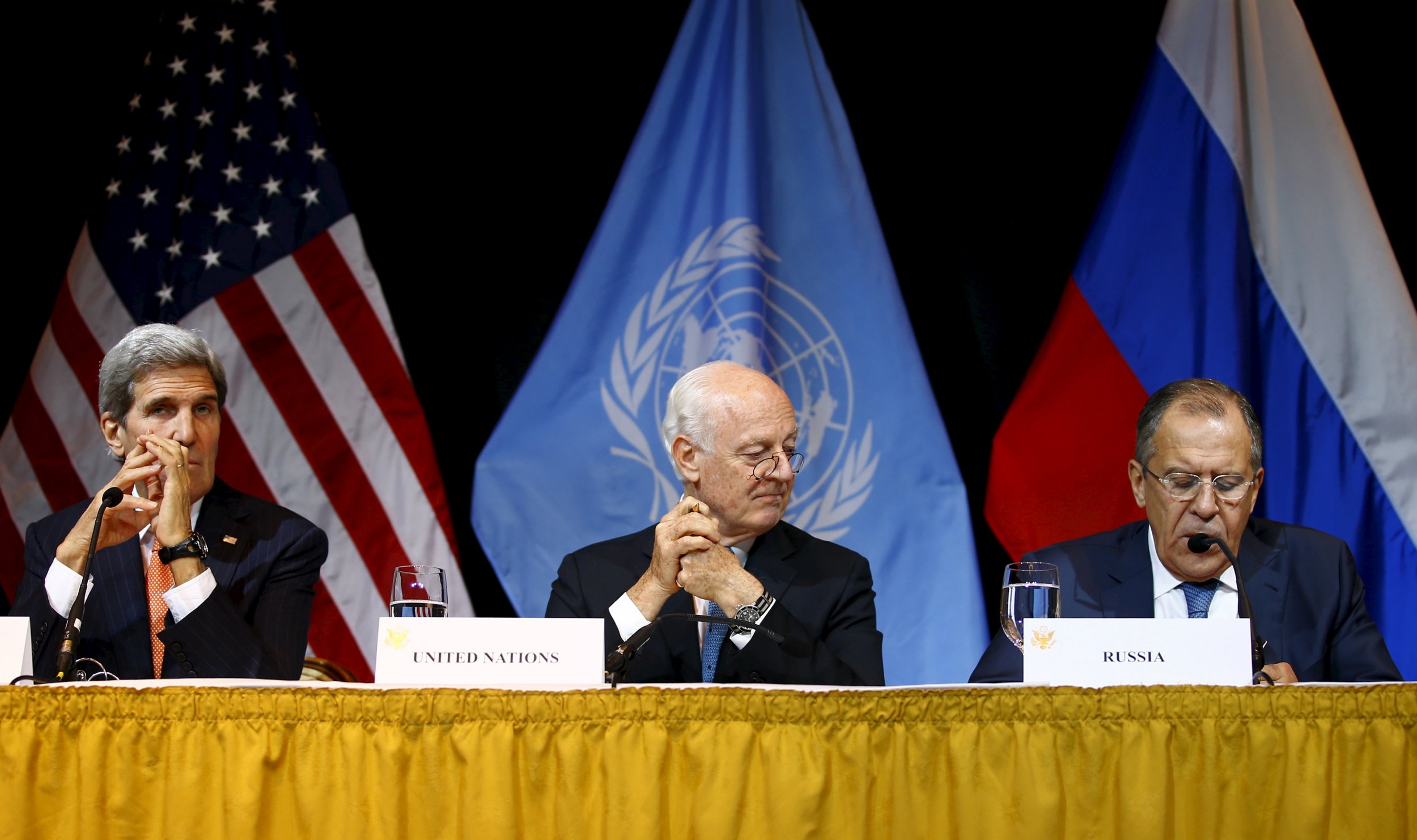
This article first appeared on the American Enterprise Institute site.
Secretary of State John Kerry has reversed a long-standing position and declared, during a visit to Moscow, that Syrian President Bashar al-Assad's ouster is not a prerequisite for Syrian peace talks.
In a sanitized world, Kerry's position has allure: After all, how can the outcome of negotiations be presaged before they formally begin? And perhaps a formula can be established by which Assad can remain provisionally until new elections.
The problem is that such sanitized, detached consideration of Syria demonstrates profound ignorance of events in Syria and the trauma which Syrians have experienced.
Over at Commentary, I drew parallels between the 2011 Hamza Ali al-Khateeb episode and the U.S. civil rights era case of Emmett Till. Both boys were kidnapped by those in power. Both were tortured and murdered. But rather than quietly burying their sons, both sets of parents allowed the media of the day to photograph their castrated bodies and broadcast the horror widely.
Both boys became household names in their respective countries. And the logic of their deaths was similar: Preserve the power of brutal elites, intimidate parents and teach a lesson to those seeking change.
When Assad targeted children, he may have thought that he would repeat what a New York Times columnist called "Hama Rules," a reference to Hafez al-Assad's 1982 murder of thousands in the Syrian city of Hama in order to quell opposition to his rule. But Bashar al-Assad never considered the impact of social media and satellite television. Khateeb's murder marked the beginning of the refugee flight and the radicalization of what until then had been a far more moderate opposition.
When news of Khateeb's murder broke, I was watching Al Jazeera Arabic with some Iraqi Americans, many of whom were distrustful of the Syrian opposition and sympathetic to Assad. The images of Khateeb's body marked a turning point for them. "Assad went too far. There's no going back now," one explained.
For President Obama and Kerry to suggest that Assad can now stay is the equivalent of telling Till's parents and those struggling for civil rights in the Deep South in the 1950s to just get over it. It never would have flown there, and it won't fly in Syria today, where parents have watched their children specifically targeted by agents of a dictator whom Kerry now accepts.
Kerry might negotiate a deal and he may believe his pivot is sophisticated statecraft, but his reversal will have zero relevance for ordinary Syrians. Instead it will only spark further recruitment for the Islamic State, for whom Assad's presence has become the single greatest recruiting tool.
Michael Rubin is a resident scholar at the American Enterprise Institute. A former Pentagon official, his major research areas are the Middle East, Turkey, Iran and diplomacy.
Uncommon Knowledge
Newsweek is committed to challenging conventional wisdom and finding connections in the search for common ground.
Newsweek is committed to challenging conventional wisdom and finding connections in the search for common ground.
About the writer
To read how Newsweek uses AI as a newsroom tool, Click here.








